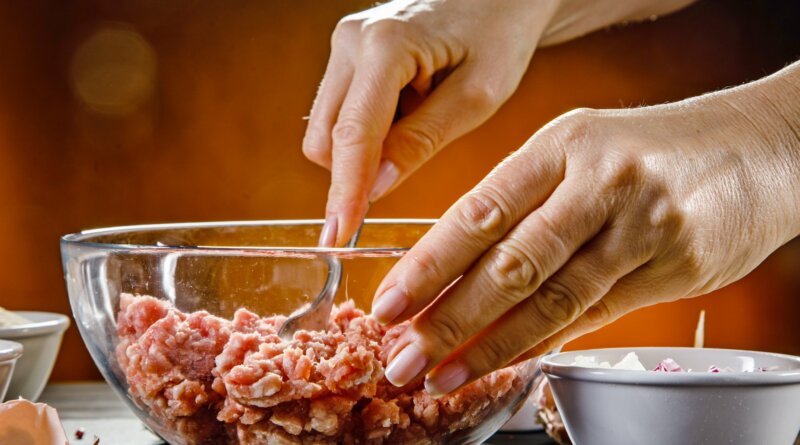3 Things To Know Before Switching to Homemade Dog Food – Top Dog Tips
It’s no secret that homemade dog food can be the healthiest diet to feed your pets. Unfortunately, it’s not as easy to create a homemade dog food diet as most owners believe. If it’s not done properly, your dog could suffer life threatening nutrient deficiencies.
Making meals at home is the only way to know for sure which ingredients are in your pet’s meals and how the meals are prepared. Homemade dog food uses fresh, human-grade ingredients. You can even include some canine superfoods that will aid in your dog’s overall health and well-being.
While it can offer some great health benefits, it can also be extremely dangerous to feed your dog a homemade diet. You can’t just look up recipes on the internet. In fact, a recent study from the University of California, Davis, School of Veterinary Medicine proves that most homemade dog food recipes are not nutritionally balanced.
In this study researchers selected 200 recipes from 34 different sources. These sources included books, veterinary textbooks and reputable online resources. Of the 200 recipes that they looked at, only 9 of them provided balanced nutrition in concentrations meeting the minimum standards established for adult canines by the Association of American Feed Control Officials.
Of the 9 recipes that met the standards, only 5 provided adult dogs with essential nutrients in concentrations that met the National Research Council’s Minimum Requirements. For this reason, it’s extremely important that dog owners take this task seriously.
I’ve been making homemade dog food for almost a decade. I’m certainly not an expert in canine nutrition, but I’ve learned a lot in the past 10 years. In this article, I’m sharing the 3 things that I believe every pet owner should know before switching to homemade dog food.
READ ALSO: What Supplements You Need for Homemade Dog Food Meals
3 Things To Know Before Switching to Homemade Dog Food
 1. Consult Your Vet or A Canine Nutritionist
1. Consult Your Vet or A Canine Nutritionist
It’s absolutely imperative that you consult an expert before switching your dog to a homemade diet. First, they will evaluate your dog and his medical history. Then, they will help you create recipes that will meet all of his nutritional needs.
Like humans, dogs are all different. Each dog has their own unique nutritional needs based on factors such as:
- age
- weight
- activity level
- breed
- health condition
You would need to do extensive research and learn about the specific nutritional needs of canines in order to make these choices yourself. Every dog has unique needs when it comes to how much protein, carbohydrates, fat, vitamins and minerals their body will need in a day.
It’s also important to remember that your dog’s nutritional needs will change over time. For example, a puppy will have different nutritional needs than an adult dog. If your dog is diagnosed with a health condition, like arthritis or a heart condition, his nutritional needs will change.
For all of these reasons, it’s crucial that you work with a canine nutrition expert to create the homemade dog food recipes that you feed your pet. You can get ideas from recipes that you find online, but an expert will likely recommend that you substitute certain ingredients or add supplements to make the meal nutritionally balanced.
 2. Most Homemade Recipes Are Not for Long-Term Use
2. Most Homemade Recipes Are Not for Long-Term Use
Keep in mind that most homemade dog food recipes are created for a certain purpose. They may be catered to the nutritional needs of puppies, senior dogs or dogs with a certain health condition. There are homemade recipes for weight loss, dogs with digestive trouble and many other specific needs.
Most of these recipes are not recommended to be fed long term. You will either need to add supplements to make the recipe nutritionally balanced or feed a variety of homemade recipes to give your dog all of the nutrients he requires. Others, like recipes for certain health conditions, should only be fed for a few days until your dog is feeling better.
You’ll need to work with an expert to create a diet for your pet when you first begin feeding homemade food. This diet will evolve over time. As your dog ages, his activity level changes and his health condition fluctuates, his diet will need to change too.
3. My Recipes Are Just A Starting Point
As I said, I am certainly not a canine nutrition expert. The recipes that I share are only a starting point. You can find recipes that you believe your dog will enjoy and recipes that fit your budget.
Take these recipes to your vet or a canine nutritionist. The expert will evaluate your dog based on the factors above and help you cater the recipes to your dog’s needs. They may recommend adding additional supplements, multi-vitamins or extra ingredients to provide your dog with the nutrients his body needs to stay healthy and strong.
READ NEXT: How Much Homemade Dog Food to Feed Your Dog






